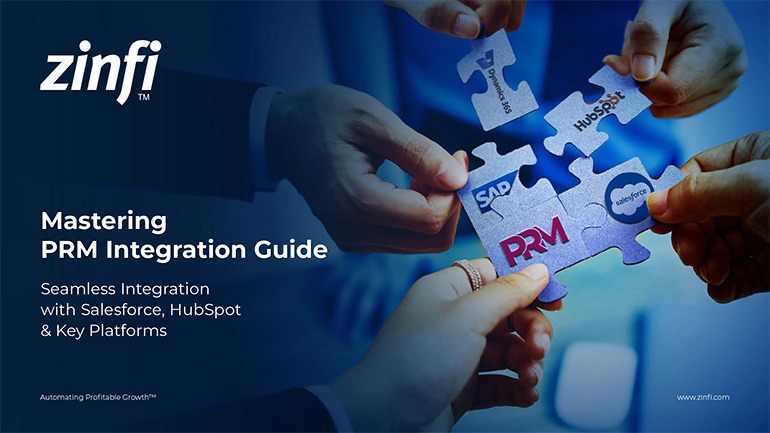Glossary - How to - Affiliate Management Tools
How to Choose the Best Affiliate Management Tools?
Introduction
Affiliate management tools are essential for businesses that rely on affiliate marketing to drive sales and expand their customer base. These tools help streamline affiliate tracking, commission payments, performance monitoring, and partner engagement. With the rapid growth of e-commerce and digital marketing, businesses need reliable affiliate management tools to maintain and scale their affiliate programs effectively.
When integrated into a robust Partner Relationship Management (PRM) system, these tools enhance partner automation, ensuring seamless operations and better ROI. Affiliate management tools eliminate manual tracking errors, provide in-depth analytics, and automate key tasks such as payments and reporting. Understanding how to choose appropriate affiliate management tools can significantly improve the efficiency and profitability of affiliate programs.
Key Takeaways:
Identify Your Affiliate Program’s Needs:
Before selecting an affiliate management tool, it’s crucial to assess the specific needs of your program. Consider:
- Tracking capabilities – Does the tool support cookie-based, pixel-based, or server-to-server tracking?
- Commission structures – Can it handle tiered commissions, flat rates, or percentage-based payouts?
- Affiliate onboarding – Does the platform offer an easy sign-up and approval process?
- Integration options – Can it integrate with your existing CRM, e-commerce platform, or PRM system?
- Fraud detection – Does the tool provide security features to prevent fraudulent transactions?
Evaluate Automation Features:
A robust affiliate management tool should include automation for key processes:
- Automated commission payouts – Streamlining payments reduces errors and improves affiliate satisfaction.
- Performance tracking and reporting – Real-time analytics help optimize campaign performance.
- Automated email notifications – Keep affiliates informed about promotions, sales, and payouts.
- Intelligent link tracking – Ensure accurate tracking of affiliate-driven sales.
Assess Scalability and Flexibility:
As your business grows, your affiliate program will also expand. Look for tools that can:
- Handle many affiliates without performance issues.
- Adapt to changing business needs with customizable commission structures.
- Support multiple promotional channels, including social media, blogs, and websites.
Consider User Experience and Support:
A user-friendly interface and strong customer support are vital for you and your affiliates. Ensure:
- The dashboard is intuitive and easy to navigate.
- The platform offers comprehensive documentation and training materials.
- Reliable customer support is available via chat, email, or phone.
Compare Pricing and Return on Investment (ROI):
Affiliate management tools come in various pricing models, such as:
- Flat-rate pricing – Fixed monthly or annual fees.
- Commission-based pricing – A percentage of affiliate-generated revenue.
- Hybrid models – A combination of flat-rate and commission-based pricing.
Calculate the potential ROI by comparing costs with the affiliate program-generated revenue.
Summary of Key Takeaways:
Selecting the right affiliate management tool requires careful evaluation of your business needs and goals. The key considerations include:
- Identifying essential features like tracking, commission structures, and fraud detection.
- Leveraging automation for payments, reporting, and affiliate engagement.
- Ensuring scalability to accommodate business growth.
- Prioritizing user-friendly interfaces and responsive customer support.
- Comparing pricing models to determine the best ROI for your business.
Businesses can thereby optimize their affiliate programs and enhance overall performance.
Key Examples:
- Automotive Manufacturing: Car manufacturers and dealerships depend on affiliate programs to promote accessories and extended warranties. Affiliate management tools help track leads from automotive blogs and influencer marketing campaigns.
- Consumer Electronics: Companies selling gadgets and accessories leverage affiliates like tech bloggers and YouTubers. Advanced tracking ensures proper attribution and commission payouts.
- Energy Production: Energy providers partner with consultants and review sites to promote renewable energy solutions. Affiliate tools help monitor referrals and compliance with regulatory requirements.
- Financial Services: Banks and insurance companies use affiliate marketing to drive new account sign-ups. Fraud detection features prevent misuse of economic incentives.
- Food and Beverage: Restaurants and meal delivery services collaborate with food bloggers and influencers. A reliable affiliate management tool helps track discount code usage and customer referrals.
- Healthcare Services: Pharmaceutical and wellness brands use affiliates to promote supplements and healthcare products. Compliance tracking ensures adherence to medical advertising laws.
- Information Technology: SaaS companies rely on affiliate programs to promote software solutions. AI-powered affiliate management tools provide predictive analytics for better partner selection.
- Pharmaceutical Development: Pharma companies collaborate with medical professionals and health websites. Affiliate tools help ensure regulatory compliance and track referral effectiveness.
- Retail Industry: E-commerce businesses depend heavily on affiliate marketers. A well-integrated tool helps manage influencer partnerships and real-time sales tracking.
- Telecommunications: Mobile network and internet service providers use affiliate programs to acquire customers. Advanced tracking and analytics help measure campaign success.
Conclusion:
Choosing the right affiliate management tool is crucial for optimizing your affiliate marketing strategy. You can make an informed decision by identifying your program’s needs, leveraging automation, ensuring scalability, prioritizing user experience, and assessing ROI. Industry-specific applications further highlight the adaptability of these tools in various business sectors.
You can enhance partner relationships, drive sales, and improve overall marketing efficiency by integrating a powerful affiliate management tool with your PRM system. Investing in the right solution will yield long-term benefits, ensuring sustainable growth and a competitive edge in your industry.
Associated Keywords:
- Affiliate Program Management
- Best Affiliate Tracking Software
- Automated Affiliate Marketing Tools















